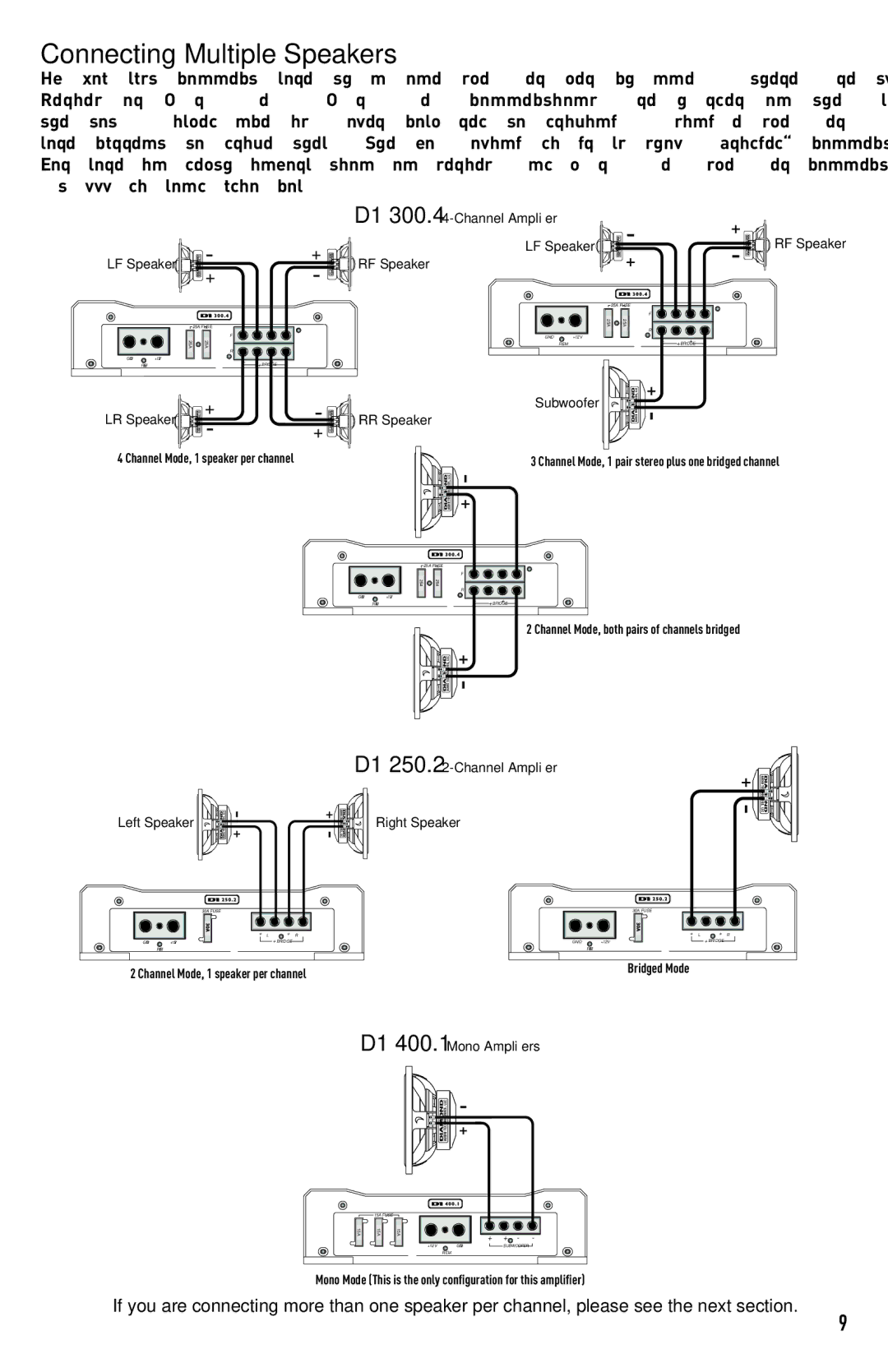
Connecting Multiple Speakers
If you must connect more than one speaker per channel, there are two methods in which to do so: Series or Parallel. Parallel connections are harder on the amplifier than series connections, as the total impedance is lower compared to driving a single speaker, and the amplifier must produce more current to drive them. The following diagrams show “bridged” connections from the amplifier. For more in depth information on series and parallel speaker connections, please visit the DAT website at www.diamondaudio.com
LF Speaker
- | + |
+ | - |
D1 300.4 |
|
LF Speaker | RF Speaker |
RF Speaker |
|
|
| 25A FUSE |
|
|
|
|
| F |
|
|
|
| 25A | 25A |
|
|
|
|
| R |
|
|
|
GND | +12V | + | – | + | – |
| REM | ||||
|
| + | BRIDGE – |
|
LR Speaker | + | |
- | ||
|
4 Channel Mode, 1 speaker per channel
- | RR Speaker |
+ |
|
|
| 25A FUSE |
|
|
|
|
| F |
|
|
|
| 25A | 25A |
|
|
|
|
| R |
|
|
|
GND | +12V | + | – | + | – |
| REM | ||||
|
| + | BRIDGE – |
|
Subwoofer
3 Channel Mode, 1 pair stereo plus one bridged channel
|
| 25A FUSE |
|
|
|
|
| F |
|
|
|
| 25A | 25A |
|
|
|
|
| R |
|
|
|
GND | +12V | + | – | + | – |
| REM | ||||
|
| + | BRIDGE – |
|
2 Channel Mode, both pairs of channels bridged
D1 250.2
Left Speaker | Right Speaker |
| 30A FUSE |
|
|
|
|
|
|
| + | L | – |
| + | R | – |
GND | +12V |
| + | BRIDGE | – |
|
|
| REM |
|
|
|
|
|
|
2 Channel Mode, 1 speaker per channel
| 30A FUSE |
|
|
|
|
|
|
| + | L | – |
| + | R | – |
GND | +12V |
| + | BRIDGE | – |
|
|
| REM |
|
|
|
|
|
|
Bridged Mode
D1 400.1 Mono Amplifiers
| 15A FUSE |
|
15A | 15A | 15A |
+12V | GND |
| REM |
+ | + | - | - |
| SUBWOOFER |
| |
Mono Mode (This is the only configuration for this amplifier)
If you are connecting more than one speaker per channel, please see the next section.
